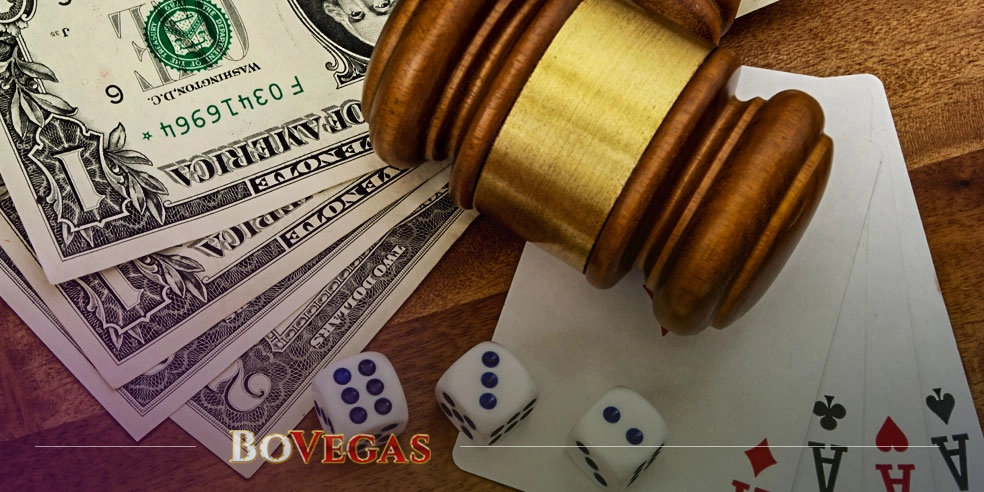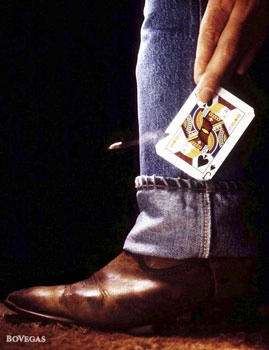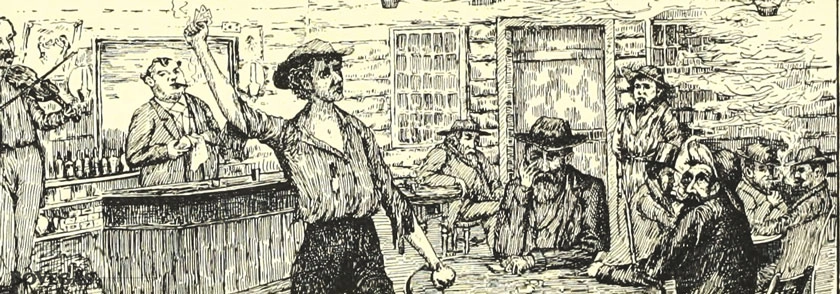



Our world is diverse. There are no two identical places. Culturally, every country and nation, and even every village, is unique. What is welcomed at one place and just acceptable at another, may not be tolerated someplace else, or may even be hated. This is what we call “cultural specifics,” where we just shrug our shoulders and try hard not to judge, and we are still learning to respect differences…
And this fully relates to gambling. So many cultures and traditions, so many laws and regulations…
In a way, social attitudes towards gambling could be a telltale sign of how open-minded or hypocritical, liberal or conservative a given society is. But we are trying not to judge. We just want to understand how different cultural traditions around the world are, as well as how they influence gambling laws and regulations.
Of course, the framework of gambling legislation never exists completely independently of the cultural context of a particular society. But this context changes all the time, and so does the legislation. In this regard, it’s especially interesting to see not only how different gambling laws are here and there, but also how exactly these changing and developing cultural contexts influence the legislation on gambling.
European games of chance may have crossed the ocean, but when they arrived at the New World in the 1600s, it was only the beginning of the journey, and not the end. The first colonists were the Puritans, who did their best to avoid any kind of activity they thought to be sinful – and that is why they never gambled or made bets. However, they changed their attitude and decided to tolerate gambling just as a pastime.
 But, in a way, everything we do is a pastime – sometimes we pay and sometimes we are paid for it. So once a society arrives at a consensus that people have a right to gamble, then immediately, a need for relevant legislation does of course emerge. It is always about drawing the line separating the good from the bad – perhaps the toughest challenge human society has ever been facing. At first glance, it might seem not that difficult; but when it comes down to criteria and methods, then many questions do arise.
But, in a way, everything we do is a pastime – sometimes we pay and sometimes we are paid for it. So once a society arrives at a consensus that people have a right to gamble, then immediately, a need for relevant legislation does of course emerge. It is always about drawing the line separating the good from the bad – perhaps the toughest challenge human society has ever been facing. At first glance, it might seem not that difficult; but when it comes down to criteria and methods, then many questions do arise.
The first thing that comes to mind when you hear about gambling traditions is probably the Native American gambling business. The Indian Gambling Regulatory Act (IGRA) allowed native tribes to run the gambling business in their territories, which led to a significant increase in revenue being generated for members of the local communities. The tribes had negotiated this deal a long time ago, and one of the most important arguments they put forward was – yes, it was a tradition!
Indeed, the native Americans have a long tradition of gambling, which has very deep historical roots. But we should remember that this traditional gambling was not roulette or card games. It had a totally different meaning and background – mainly ritual, spiritual and magic. Attracting favorable spirits, influencing the weather, promoting good luck at the forthcoming hunt and for the newborn babies – that’s what they had in mind. And the European concept of sin was alien for them – every bit as much as the very idea of gambling for cash and betting real money.
But this is where traditions and cultures merge and influence lawmaking, which results in serious changes in life. The Native American casinos have become, quite possibly, one of the most successful business and economic development projects for these territories.
Historically speaking, in the US, they have always looked at professional gamblers with suspicion. Casual gambling was tolerated and even welcomed at some places, soon becoming a characteristic feature of the American lifestyle, especially where other kinds of entertainment were scarce. But people still looked askance at making your living from it. Here the criteria had been quite obvious.

But it is still very difficult to understand why some kinds of gambling – such as, for example, making bets on animal fights or cockroach races (we’ll come back to that one a bit later) – were considered “ungentlemanly.” And at this point, we’ll have to go once more with foggy explanations involving “culture and traditions.” Even so, these games of chance never contradicted the world outlook and mindset of the early colonists. Their adventurous spirit largely prevailed, and “being lucky” was something held in very high regard.
So this was the breeding ground for gambling in the colonies. The crown tried to impose more control on it, but this has never been an easy task. After the colonies gained their independence, gambling control measures became a local headache. And we have to admit that still are – especially noting when we consider the neverending legal fights over the gambling agenda in the US nowadays.
Over the past two centuries, the approaches taken have changed many times, with constant policy flip-flops – from total bans to legalizing and licensing. Economic troubles push the lawmakers to more liberal steps, as gambling is thought to stimulate the economy and its entertainment, service, and hospitality industries. This effect is especially seen on the local level. But also nationally – take national lotteries as an example, as they have proved to be an effective tool for fundraising.
By contrast, anti-gambling measures are supported in some conservative circles. Here “culture and traditions” arguments acquire a different shade. In the last instance, it all inevitably collides with the concept of “sin” – but we are not going to dig any deeper into this topic here. Let’s only mention that pro-gambling and anti-gambling arguments, in fact, haven’t changed much. They are basically the same, in essence, as they were 200 years ago.
But there is one thing that has changed substantially: the attitude towards professional gambling. Society grew towards largely accepting the fact that there were some people who wanted to find fulfilment as gambling professionals. Such gamblers are viewed as sportsmen – and perhaps they are, as sports became a notable social phenomenon in the industrial and post-industrial era. The early Puritan colonists had no idea of going in for sports, and back then, there was no such job as a “professional sportsman.” So, culture and traditions do change; and as always, the respective law-making changes are not long in coming.
People tend to be prepared to bet on anything. It is even in the language – every phrase beginning with “I bet…” does not necessarily refer to gambling and making wagers, of course; rather, it refers to the fact that the very concept of betting is rooted very deeply in Western culture.

The fact that sports have become more popular over time has resulted in more people betting money on different kinds of sports. And again, it has attracted serious legislative efforts to regulate this activity. One of the reasons for this need to legally regulate and control is that, to rephrase a popular ad slogan of one well-known drink, “where there’s a sport, there’s a cheat.” We must regretfully admit here that the history of gambling is full of cheating. And that has been one of the most important factors leading to a legal tradition – there’s been a real need to fight all kinds of cheats.
Online gaming became another challenge for lawmakers. We’re not going to review, here and now, all the legal lances broken over numerous issues related to online cash games, both in the USA and worldwide, over the past 20 years. We can only say that the dust hasn’t settled yet, though a lot of efforts have been made to bring things down to being normal, or “civilized” – with control mechanisms, rights, data protection, etc. But a new culture and a new tradition always do this: it’s these that lead to calls for new laws, and not vice versa.
Now, however, we’re witnessing a different tendency. Professional e-sports have become increasingly popular. It is a new kind of gambling, and at the same time, a new kind of sport as well! A new tradition and a new culture are being formed right before our eyes – with all the unique features you’d expect like lingo, clothes, lifestyles, and circles of adepts. We shall see what kinds of legal response will arise to what’s developing over time.
In the US, any kind of gambling that is not legalized and authorized by the state authorities is illegal. The location is also important: because if people gamble where they shouldn’t be gambling, it is also illegal, even if the game they’re playing is one that is permitted under the right conditions. You should check whether the game you would like to play is legal at this specific location before you accept any offer to play it.
There are only two states in the US where there is an explicit ban on all kinds of gambling, without exception: Utah and Hawaii. The reasons are different. In Utah society, the position of LDS (the Church of Latter-Day Saints, or Mormons) is very strong and influential, and the Mormons condemn all kinds of gambling. In Hawaii, the reason is that the local economic profile depends on the more “family-friendly” kind of tourism; and the state authorities have decided that gambling is incompatible with that focus.
There is a long list of countries and territories where gambling is illegal – either fully banned or partially restricted! Gambling is forbidden in the Islamic world, with some exceptions made for foreign visitors, or for online sports betting in a few countries. Another group of countries with full or partial bans is represented by states like China and Cuba, as well as by post-USSR states – only those places where anti-gambling traditions are still very strong. Strong anti-gambling lobbies are backing such bans in Poland and Ecuador, too. If you plan to gamble during your next international visit, check your travel destination about whether it would be illegal. If so, better do it before you go!

Have you ever wondered how to bet faster, more efficiently, and at any time, day or night? If so, you’ve probably heard about certain automated programs called gambling bots. The latter are a kind of software which uses specific algorithms, in order to interact with websites APIs and place bets without human input. These innovative […]
The planet is now in its worst condition: from the desiccation of rainforests into savannas to the constant growth of plastic waste. The last UN report showed that population losses are jaw-dropping, and it is time to act now. Land-based casinos have always been associated with 24/7 fluorescent lights, floodlit fountains, and fancy hotels. However, […]
There is nothing better for a true gambler than the taste of victory! And players always want to have all the available methods at their disposal to increase their chances of winning. And card counting, a strategy used primarily in blackjack games, is among these tools. Both professionals and amateurs are using it to their […]
The gleaming lights of Las Vegas Strip are gonna set your soul on fire! So when you finally make it to Sin City, don’t forget to pay a visit to some of the most extravagant bars, so you can add a very exciting new splash of color to your Instagram account! Mix the best shows […]
If you love gambling and have been to a land-based casino at least once, you may have thought about becoming a dealer. Playing the same game but from the opposite side, while communicating with other players, sounds like a dream job, right? A dealer is a straightforward job, and you will be the heart and […]
On Monday September 14, MGM announced that it plans to open its first smoke-free casino at the end of September, when Park MGM will finally reopen its venues to players and tourists. The resort comprises around 2,990 rooms and various restaurants, and it’s set to be reopened on September 30. The venue has been closed […]
Online gambling has undoubtedly taken a place of true supremacy over the casino industry during the pandemic. And the reason for that is quite clear: online casinos are more accessible, and you can always count on some encouragement from the casino administration to help you boost your game. However, this digital revolution has only been […]
The large selection of online gambling sites out there can make players somewhat puzzled, and give them a feeling of uncertainty about making the right choice of casino. Each online gambling venue offers its own conditions, games, and various bonuses, of course; but the most important thing is the reliability of the casino and the […]